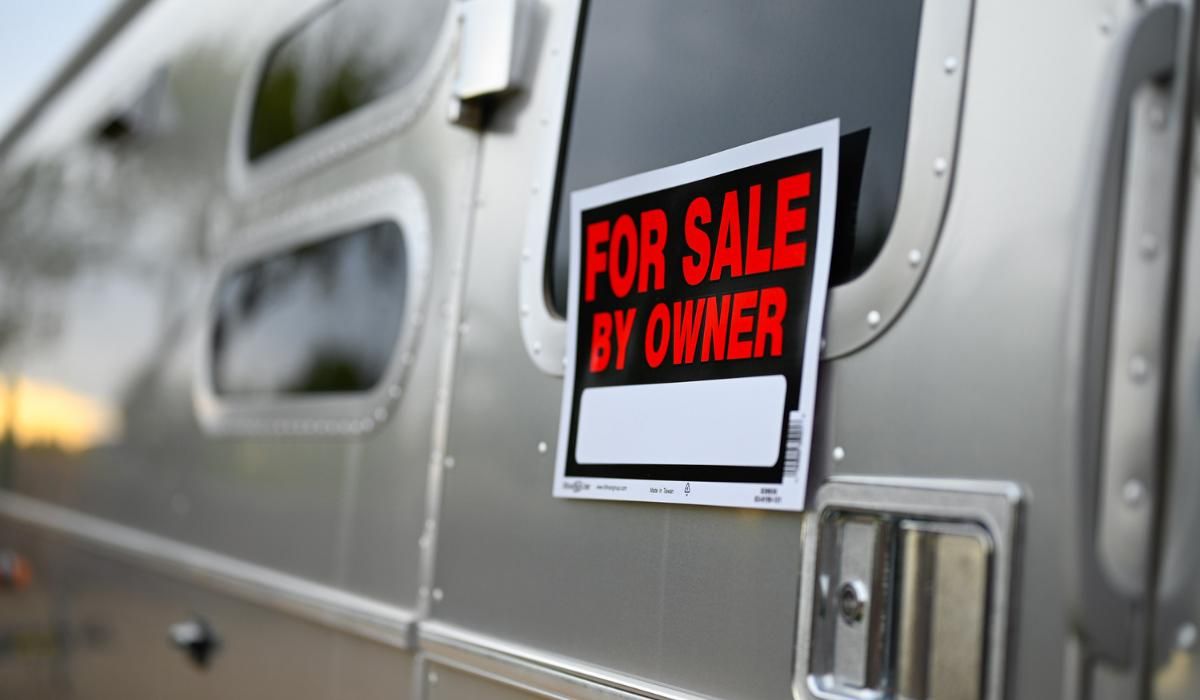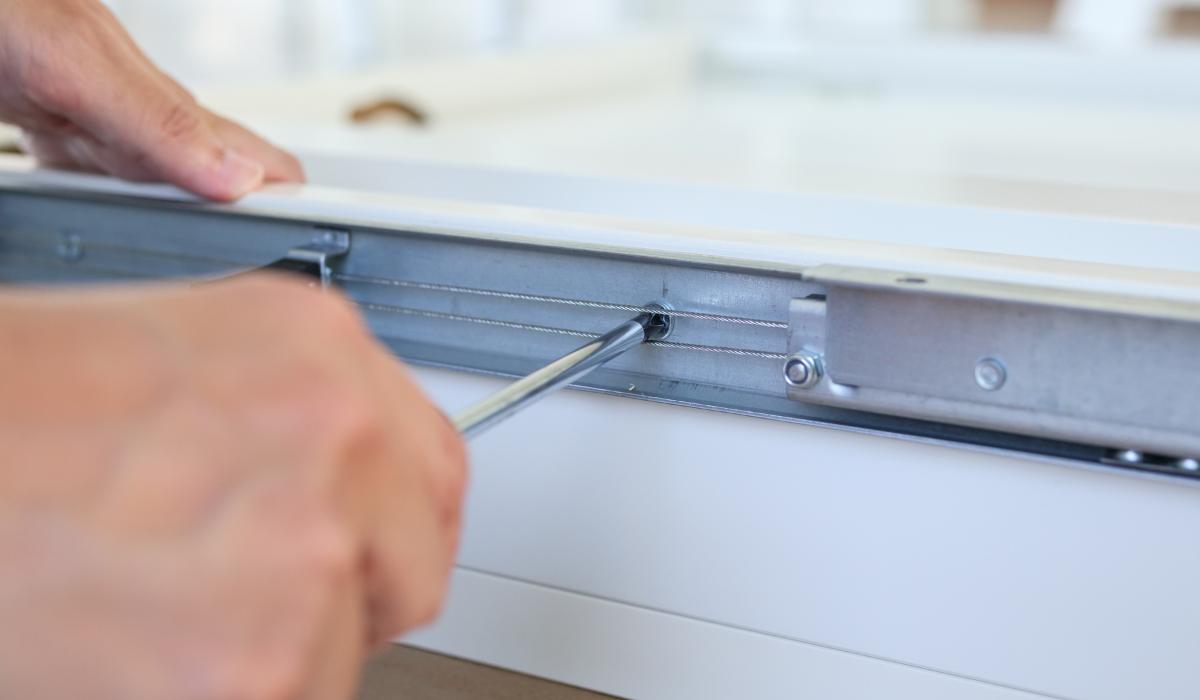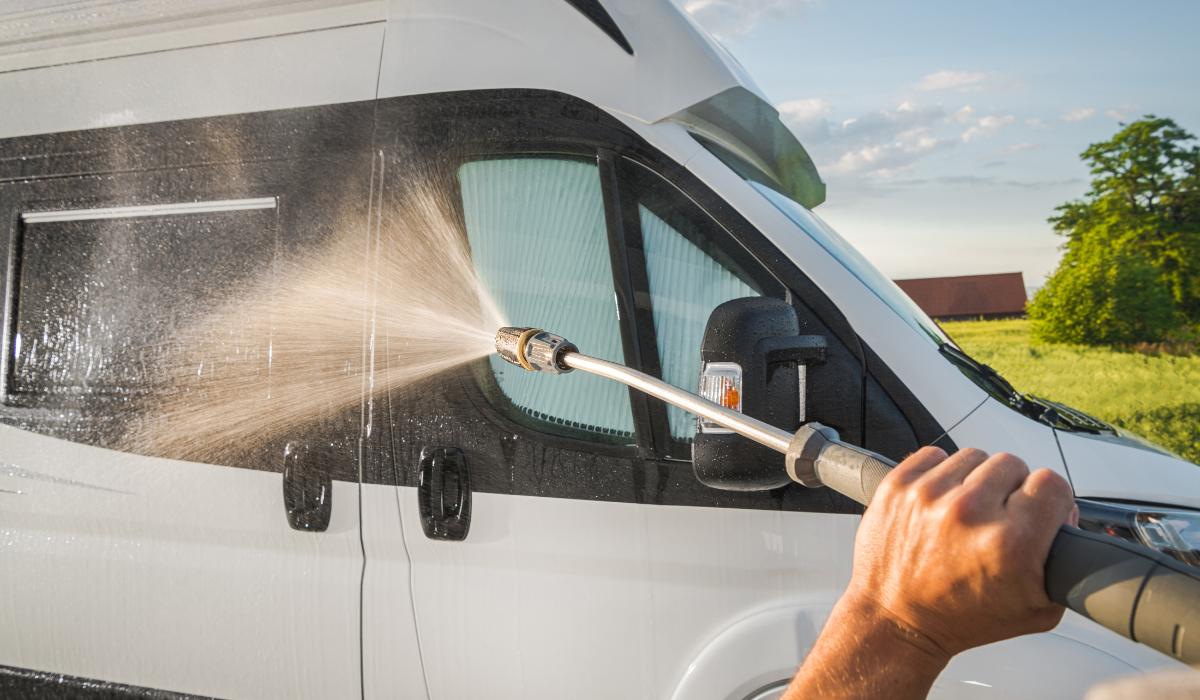
Preparing to sell your RV can be an overwhelming experience, especially if you're doing it on your own. But, with a helping hand and the right guidance, you can make the process much smoother.
This article will give you ten essential tips for selling your RV, covering everything from valuation and pricing to advertising, negotiation, and closing the deal.
Let's get started.
Understand your financial obligations
Can you sell an RV if you still owe money on it? Yes. Call your lender for an official payoff, find out how to pay off your loan, and transfer the title to the new buyer. Since every lender handles things differently, you’ll know ahead of time what documentation you’ll need to give the buyer and the bank and in what order.
Determine your RV's value and set a competitive price
The RV valuation process is similar to the automobile valuation process, except the RV industry uses NADA Guides as the primary valuation tool instead of Kelly Blue Book.
If you price your RV using the tools the RV industry relies on, you will be more likely to attract serious buyers with your competitive price.
Need help finding the value of your RV? We break down everything you need to know in What Is the Value of my RV? [NADA Guides Explained].
Repair damages and perform routine maintenance

Ensure all systems and appliances are working to create a stress-free experience for you and your buyer. Repair any major issues, as they could be red flags for buyers. Make a copy of your maintenance, warranty, recalls, and repair records to show prospective buyers. If you have known problems and can’t repair them properly, disclose them to your buyer and adjust your selling price accordingly.
Gather the documents you'll need to sell your RV
Gather the documents, such as the title (if you own the RV, free and clear), maintenance records, user manuals, and warranty paperwork, to show potential buyers you've taken care of it. If your RV has outstanding recalls, take care of those before listing it for sale.

Clean your RV and make a great first impression
First impressions matter! A clean and well-maintained RV will be more appealing to potential buyers. Clean the interior, exterior, storage compartments, awnings, roof, tires, wheels, and the undercarriage. Consider professional detailing if necessary.
Want to know more about cleaning your RV? Check out our 13 tips for cleaning your RV like a pro.

Take high-quality photos
Take clear, well-lit photos from various angles of all areas, including the interior, exterior, engine, and storage spaces. Taking horizontal and vertical pictures will help your listing stand out in almost any listing type. Remember to highlight any unique features or upgrades you've done. The more you showcase your RV with pictures, the more traffic you'll likely see on your listing.
Create a detailed listing
Be transparent and thorough in your listing. Include all relevant details about the RV, such as make, model, year, mileage, features, and any recent repairs or upgrades. Honesty builds trust with potential buyers.
Advertise effectively

A broad advertising approach increases your chances of finding the right buyer. Use various platforms to reach potential buyers, including free online RV buy-and-sell platforms, like the RVezy marketplace, local classifieds, social media, and other online tools to list your RV for sale.
Pro tip. Offer video walkthroughs if someone in another location wants to see your RV but can't make it there in person right away.
Negotiate fairly
Be open to negotiations, but know your bottom line. Understand that buyers will likely try to negotiate, so price your RV with a little wiggle room. Stay calm and professional during negotiations.

Complete a secure transaction
Once you've agreed on a price, develop a plan to complete the transaction securely. Verify the buyer's payment and complete all necessary paperwork, including an official bill of sale (if needed) and title transfer. Both parties will feel more secure if you conduct the transaction at a bank or your lender's office.
Suggested reads
The Expert Guide for Buying an RV
RVezy Launches a Buy-and-Sell Marketplace
How to Sell Your RV for Free in the United States
Three Ways to Sell Your RV for Top Dollar Quickly in Canada
Frequently asked questions
Do I have to keep my registration and insurance current when I'm selling my RV?
Yes. It's essential to keep your registration and insurance current throughout the selling process to avoid legal issues and ensure you'll have coverage should your RV become damaged or become involved in an accident.
Should I have my RV appraised?
Consider paying for a certified RV appraisal if you want more leverage when buying or selling an RV. Certified RV appraisals also come with a suggested price range for buying or selling, which makes your negotiations even stronger.
What if the buyer requests to have a third-party inspection before buying my RV?
It’s up to you and the buyer to determine if and where the RV inspection will take place and who will be responsible for the cost. Inspectors generally check for mechanical issues, water damage, and overall functionality.
What documents do I need to sell my RV to a private party?
You'll probably have to provide the buyer with the original title and a notarized bill of sale. Sometimes, you may need to provide other supporting documents, such as proof of tax payment or any documentation the buyer might need to complete a VIN verification.
How do I transfer the RV title to the buyer?
Once the lender receives the payoff, it will release the lien and send the title (and any profit) to you. You'll be responsible for sending the original title to the new owner.
Do I have to pay taxes when I sell my RV?
It's important to check the specific rules in your area, as they can vary, but typically, when you sell an RV, the buyer is responsible for paying the sales tax when they register the vehicle.
What should I do if my RV isn't selling?
There could be several reasons why your RV isn't selling. Price, weather, or fluctuations in the current RV market could affect people's buying habits. In these cases, it's best to adjust your price or wait until the peak shopping season. You can also consider renting out your RV until the market picks back up again. Peer-to-peer RV rental platforms — like RVezy — are great places to rent out your RV when you're not using it. Not only does renting your RV on RVezy generate income and help pay off depreciation, but it may also help you find potential buyers within the rental community when you're ready to sell.
